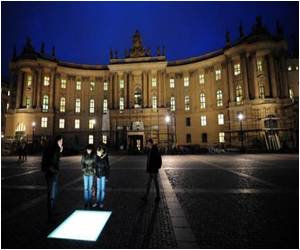Effect Of Nazi Book Burnings can still be felt in Germany, as officials said the country needs to recover from its self-inflicted intellectual decapitation .

The speaker of the Bundestag lower house of parliament, Norbert Lammert, joined a commemoration at Berlin's Humboldt University near where fascist students took part in the mass torching of works.
He said Germany had still not returned to the international intellectual standing it enjoyed before the Nazis' "break with civilisation", according to remarks reported by local news agency DPA.
He quoted Austrian Jewish author Joseph Roth who said even before the Nazis took power, "They will burn our books and mean us."
The book pyres marked the first dark milestone in the Nazis' purge of what they deemed "undesirable and harmful literature" with an "un-German spirit" and ushered in the systematic, deadly persecution of Jewish, Marxist and pacifist writers.
Works by Sigmund Freud, Heinrich Mann, Karl Marx, Kurt Tucholsky and other thinkers and literary giants were among those torched.
A little over five years after the book burnings, it was Jewish synagogues that went up in flames during the so-called Night of Broken Glass.
Source-AFP
 MEDINDIA
MEDINDIA



 Email
Email






